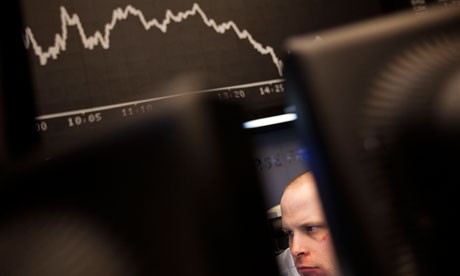Why Europe crisis is about German economic interests Opinion and Analysis
Post on: 12 Апрель, 2015 No Comment

German Chancellor Angela Merkel (centre) stands by MPs as they cast their ballots on a law to expand the EU’s rescue fund in Berlin. Photo/AFP
The Germans can end the crisis in two ways; by allowing Portugal, Italy, Ireland, Greece, and Spain (together now known as the PIIGS) to exit the euro; or by them and other bigger economies such as France walking away from the euro.
They will do neither. Why? Because Germany is the biggest beneficiary of the common currency regime. It has far much more to gain than lose from being in the euro.
Prior to the introduction of the euro on January 1, 1999, the German Deutsche Mark (DM) was the premier currency of Europe.
The euro inherited the strength of the DM and the common currency ‘‘benefited’’ the PIIGS who found themselves in a situation where they could now borrow money at interest rates close to what the Germans were used to paying.
So the PIIGS and their citizens went on a borrowing spree. These governments launched large social spending programmes, financed through borrowing, which subsidised most of their key public services.
Their governments, corporates, and citizens borrowed heavily as if they lived in Germany.
With time the inflation of these countries became higher than the rate of interest being charged on loans. The borrowing rate becoming less than the inflation rate meant they were effectively being paid to borrow.
And borrow they did. They racked up enormous amount of debt in euros. The Spanish, for example, borrowed to speculate in real estate financed through bank lending.

The Italians’ debt to GDP ratio soon hit well over 120 per cent. Some countries had more public than private debt. It was the opposite for others, while some had both their public and private debt hitting the roof.
It was debt everywhere. Who were making these loans? Mostly German banks who were able to raise deposits at much lower interest rates in Germany and offer it at a slightly higher rate in the PIIGS countries.
The German economy became the largest exporter in the world on the strength of the euro — bigger than even China.
These exports were mainly to the Eurozone. The euro being the common currency, exchange rate fluctuations, which is a key factor in international trade no longer mattered and competition on the export front was purely on who had the least cost of production.
Germany was more productive than the other members of the eurozone and on average it costs far much more to produce the same amount of goods in the PIIGS than in Germany. Banks play a key role in international trade.
So the way it worked was that German banks lent to the PIIGS at low interest rates, and they in turn bought German goods and services.














